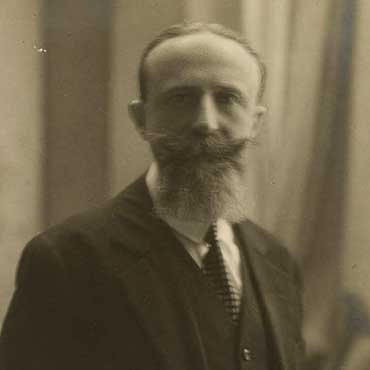Giuseppe Favaro was born in Padua in 1877. He studied medicine in his own city and, after graduating in 1901, became assistant and then deputy to Dante Bertelli, an anatomist and morphologist of note. Having on his record various contributions published while he was still a student, in 1906 he became a university lecturer in anatomy, was given an appointment in topographic anatomy in Padua and taught artistic anatomy at the Istituto di belle arti in Venice. In the immediate period after World War I, after returning from the front, he held the chair of human anatomy in Messina and then in Bari, where he was also made director of the Institute and the first principal of the Faculty of Medicine and Surgery, when he read an inaugural lecture on Leonardo. In 1926 he obtained the chair of anatomy at Modena, which he held to the end of his career, despite his repeated attempts to be called to Padua (where both his father and maternal grandfather had taught), which never succeeded.
Besides his commitments to teaching and organisation (such as starting a new histological section and the enlargement of the museum), he distinguished himself as a scholar of morphology and embryology, with numerous publications on his record based on the comparative method. He also collaborated in the publication of books on anatomy, some of which were to circulate widely. After he was steered by Antonio Favaro towards historical studies, he worked on Girolamo Fabrici d’Acquapendente, Antonio Scarpa and Leonardo da Vinci, following the teachings and legacy of his father. This led to his being made a member of the Commissione vinciana. He also took part in the committee for the history of the University of Modena.
Being a supporter of the use of Latin as the international scientific language, he would organise meetings and debates, and take part in competitions and certamina, winning one with the poem Mors laniata, which described an autopsy in verse. A convinced fascist, after the Second World War, Favaro carried out lengthy negotiations with Sebastiano Timpanaro senior and Giovanni Gentile, respectively director and president of the Domus Galilaeana, which led to his handing over the library and archive of his father, thus helping to make it one of the main collections of the institute in Pisa. Giuseppe Favaro died at Fiesso d’Artico in 1954, where it is assumed he continued to keep his father’s papers concerning his family and friends, which have still not been found, in part because he had no direct heirs.


